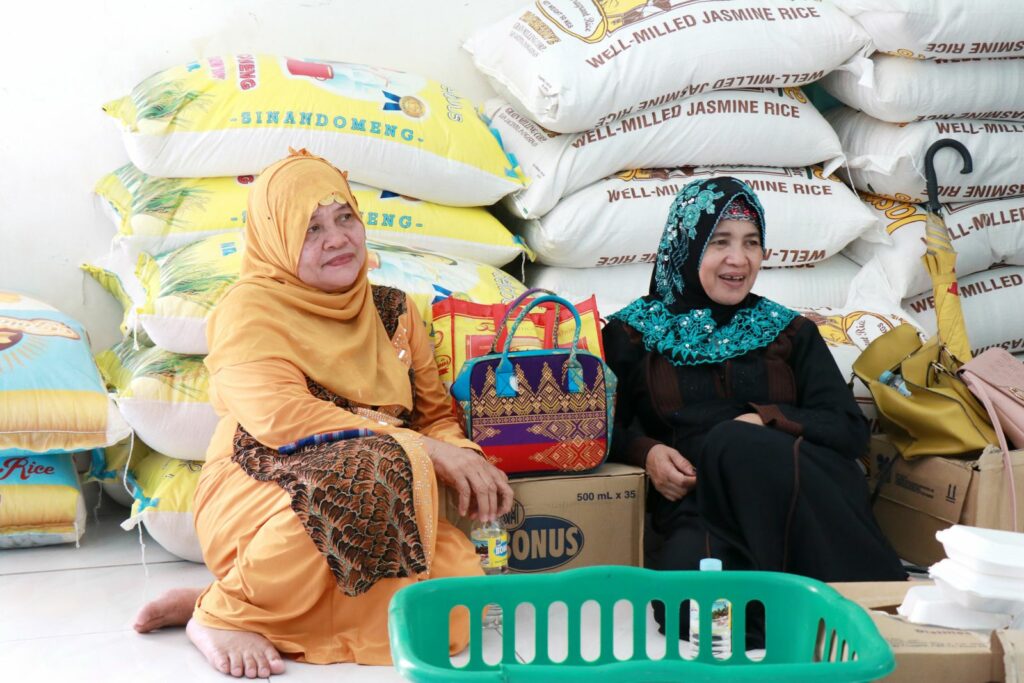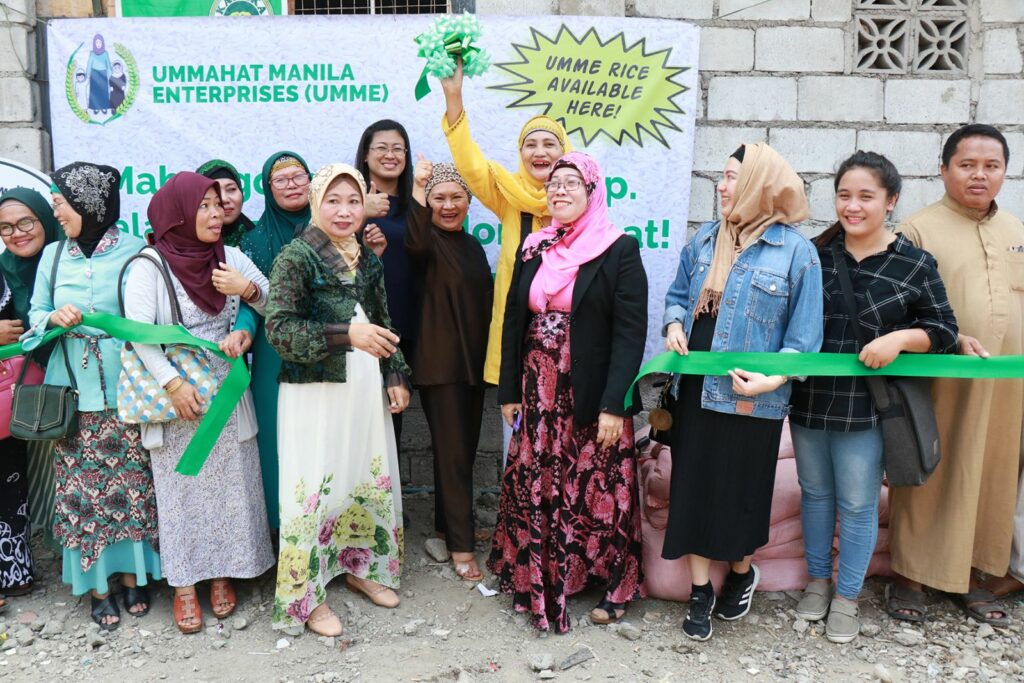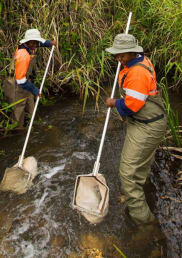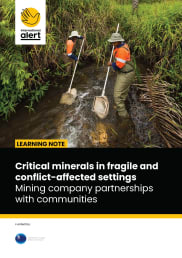Muslim Mothers of Baseco launch social enterprise to build peace
On 30 March, a group of Muslim mothers in the Baseco region of Manila launched a ‘rice for peace’ social enterprise. This enterprise aims to provide additional income earning opportunities for women and aims to sustain the community-run madrasa (Islamic school). This school is a pillar of their community; it teaches Muslim youth about Islamic values and way of life.

Ummahat Baseco is a group of women that have been advocating since 2007 for basic services in one of the country’s biggest slums. They recently formed the Ummahat Manila Enterprise (UMME). The goal of this enterprise is to fundraise for Mahad Baseco Madrasa operations and facilitate the remuneration of the ustadzes (Islamic teachers). These ustadzes teach young Muslims in the enclave to be resilient to the lure of illegal activities and extremist ideologies and recruitment.
According to Sally Impao, a member of Ummahat Baseco, almost half of Baseco’s population consists of Muslim immigrants who fled conflict-stricken towns in the southern Philippines since the 1990s in search of jobs and economic opportunities. Many Filipino Muslims have found themselves facing extreme discrimination and exclusion, especially in urban areas outside Mindanao. This has pushed many Muslim women and youth in this region to engage in illicit activities. Sadly, this has also made them vulnerable to extremist groups that weaponize religious and cultural identities in order to justify violence against others.
“Hindi kami makapag-hanapbuhay sa Mindanao. Sa totoo lang, kaming mga kababaihan ang talagang totoong biktima ng lahat-lahat ng kaguluhan. Kamingmga nanay ang nakatira sa evacuation center kasama ang aming mga anak. Kaya naisipan naming na pumunta dito sa Manila dahil hinahanap naming ang opportunity para magkaroon kami ng matiwasay at masaganang buhay. Pero sa kasawiang palad, kabaliktaran ang expectationnaming dahil pagdating naming dito, discrimination ang inabot namin. Nahirapan din kami kahit sa pag-aaply ng trabaho, ayaw nilang tanggapin ang mga Muslim. Kaya ang mga iba ay pumapasok sa mga illegal na gawain para lang makakain ang pamilya niya,” Impao said.
(“We couldn’t find work in Mindanao. In fact, we women are the real victims of conflict. We mothers are the ones who live in the evacuation centers with our children. That’s why we decided to come to Manila to seek opportunities and have peaceful and prosperous lives. Unfortunately, what we found was the opposite of our expectations. We experienced so much discrimination. We had difficulties applying for jobs because they won’t hire Muslims. This is why others got involved in illegal activities just so their families could eat.”)
“Kasi nagkakaroon ng gulo ang isang community pag sobra nang hirap. Dahil sa naiisip namin na negosyo, mababawasan din (ito), magkakaroon din ng kabuhayan doon sa community,”Myrna Masukat, another Ummahat member explained.
(“Conflicts arise in a community when there is so much hardship and poverty. Now that we thought of putting up a business, these will be lessened because there will be livelihood opportunities in the community.”)
Community-run Islamic schools
Aside from alleviating the plight of families, Ummahat Baseco saw it necessary to develop this social enterprise in order to sustain the operations of the Mahad Baseco madrasa. They found this to be particularly important because Islamic schools supported by the Department of Education (DepEd) solely teach the Arabic language and Quran but fail to incorporate Islamic values in the curriculum. Most community-run madrasas that teach Islamic values such as tolerance and peace operate on familial contributions.
Ang hirap kasi sa madrasa dito, hindi siya naka-attach sa DepEd kaya hirap na hirap ang mga ustadz kung paano kumuha ng income. Siyempre ang mga ustadz may mga sariling pamilya din yan at kailangan nilang magkaroon ng hanapbuhay para sa pamilya. Hindi sapat yung kinikita ng ustadzes dito dahil sa contribution lang ng mga parents,” Masukat said.
(“The thing is, our madrasa is not attached to DepEd so the ustadzes find it difficult to obtain an income. Of course, the ustadzes have their own families and they need to be employed for their families. Right now, the ustadzes do not earn enough with only contributions from the parents.”)
The Mahad Baseco Madrasa is run by 10 volunteer ustadzes. More than 100 students attend the school every weekend.
Role of women in peacebuilding

Nina Bahjin-Imlan, Project Officer of International Alert Philippines who helps mentor and provide technical support to the Ummahat Baseco, explained that building conflict-resilient communities means involving all sectors, especially marginalised youth and women.
“Youth are easy targets of violent extremist groups because of the lack of opportunities for education and livelihood and employment. The same goes for women, especially Muslim women who face double discrimination both for being Muslims and women at the same time.
Wala silang oportunidad para makakuha ng trabaho, wala silang boses sa lipunan, hindi sila nabibigyan ng political participation (They do not have opportunities to get jobs, they do not have a voice in society, and they are not given opportunities for political participation),” Bahjin-Imlan said.
According to Bahjin-Imlan, women are the glue that binds communities. Providing them opportunities to participate in socio-economic and political activities that enhance their capacity to provide for their families eliminates the need to engage in criminal activities, reduces the influence of violent extremist groups, and uplifts their stature in the community as a strong voice or reason and compassion.
Mahaba at hindi naging madali ang proseso ng pagdevelop ng rice trading business ng ating women partners sa Baseco. Pero dahil sila ay may clear vision, at dahil meron silang napakagandang mission hindi lamang para sa kanilang mga sarili kundi pati narin sa community, ay nagawa nilang magpursige at maipatupad itong maliit na negosyo
(“The development of the rice trading business of our women partners in Baseco has not been quick and easy. But because they have a clear vision, and they have a noble mission not only for themselves but for the whole community, they managed to be persistent and make this social enterprise a reality.”)
The UMME initiative is supported by International Alert Philippines with funding support from the Ministry of Foreign Affairs and Trade of the New Zealand Government and the Department of Foreign Affairs and Trade of the Australian Government.






